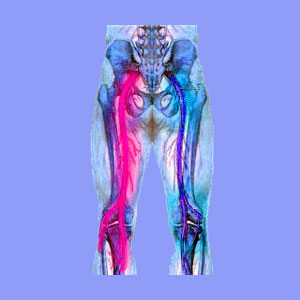
A sciatica specialist is a medical doctor or complementary healthcare provider who focuses their attention and practice on treating patients who are stricken by the ravages of this epidemic radiculopathy syndrome. Specialists are typically not primary care doctors, but are accessible by referral from your general practitioner.
This essay will detail some of the usual types of care providers who qualify as sciatica experts. We will discuss why seeking care from a specialist can be a good idea for most patients, but will also warn of some of the usual negative aspects of specialized care.
Medical Sciatica Specialist
Many orthopedists and orthopedic surgeons are considered experts in sciatica treatment. These doctors have been trained in traditional medical science and will typically employ these methods when attempting to resolve the painful complaint. Remember, orthopedists are musculoskeletal experts, but sciatica is a nerve pain condition.
Neurologists are also medical doctors and these caregivers are truly ideally suited for diagnosing and treating sciatica syndromes. Neurologists and neurosurgeons are nerve pain experts and can best ascertain the source of true radicular and neuropathy issues stemming from the spine or elsewhere in the anatomy.
Meanwhile, physical therapists are experts in many of the diagnoses often associated with pseudo-sciatica, including sacroiliac joint dysfunction and piriformis syndrome.
Regardless of what type of medical doctors you see, conservative modalities, such as physical therapy, heat and ice and drugs will usually be the first line of defense against acute sciatica. If the patient develops chronic sciatic nerve pain, then the therapy options will be escalated to include epidural injections and stronger drugs. If these also fail in curing the pain, sciatica surgery is the next logical step, but is often recommended even far earlier in the treatment regimen.
Chiropractic Specialist
Some chiropractors also specialize in treating radicular and pseudo-sciatica pain. This profession is uniquely qualified to deal with all varieties of back pain, for it is dorsopathy sufferers who make up the overwhelming percentage of their clientele.
Chiropractors will virtually always employ manual spinal manipulations, called adjustments, to treat back and leg pain. Some chiropractors also rely on complementary therapies, such as exercise, reiki, massage or TENS treatments to provide a diversified approach to sciatica care. Chiropractors are highly individualized in their methods and each one will perform different techniques for each specific sciatica condition.
Sciatica Specialist Results
I have been to many back pain specialists in my time, from a wide range of healing arts. Some were fantastic healers and I could recognize their worth, despite their inability to cure my pain. Others were a complete joke and their treatments and lectures would have been hilarious, if it were not for the high price tag I paid to be entertained by their utter nonsense and ineptitude.
However, all told, the best specialist I ever met was the one who probably helped me the most, at least in terms of providing a quality education about many of the lesser considered aspects of chronic pain. Dr. John Sarno helped me to better understand many of the true facts about sciatica and how the condition can be a real problem to accurately diagnose and subsequently treat. While his teachings only provided temporary respite from my pain, his lessons did have other longer lasting benefits.
In summary, it is my advice to always seek qualified care for sciatica from a neurologist. Make sure your choice of doctors is objective and enlightened. Try to find a physician who is younger and educated in a time when pain is viewed quite differently than many decades ago. Sometimes, trading in years of experience for a fresh and honest perspective is just what a patient needs to find a true cure.





